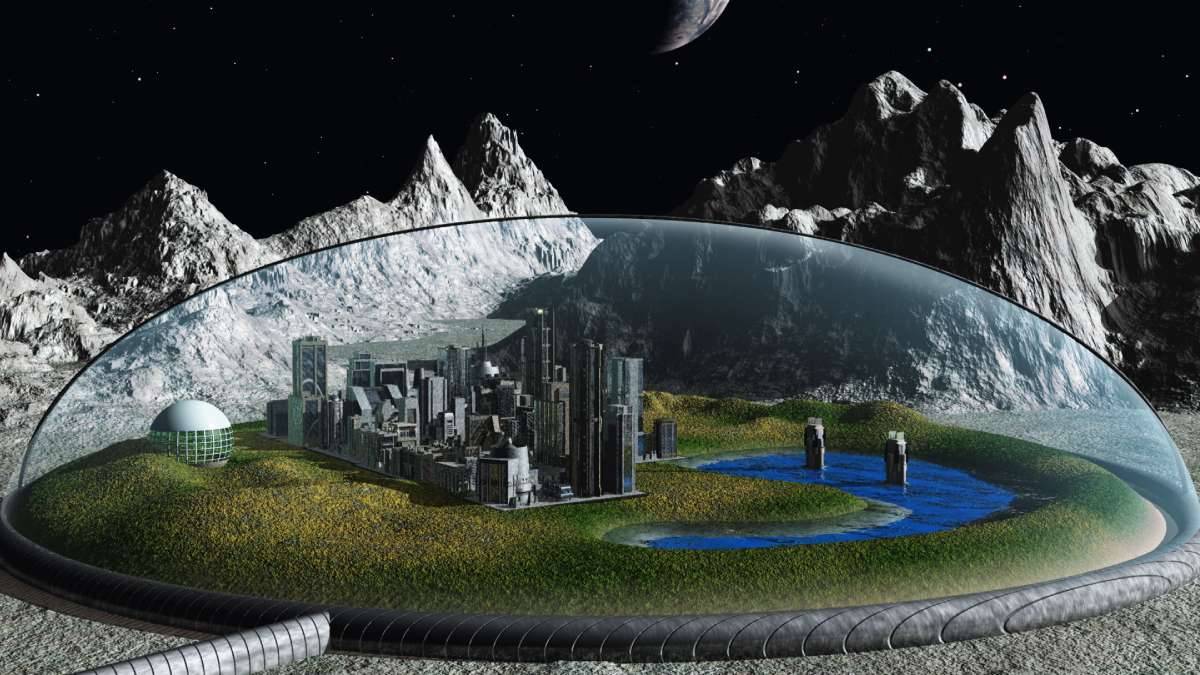
Living On The Moon
ARTICLES | Jun 29, 2022
Writer: Nuttawut Kulkaew
Editor: Wittaya Wonglor
In addition to restoring the world's environment, another solution for our ecological problems could be to colonize space.
FutureTales LAB by MQDC expects pressure from climate crisis and overpopulation, along with advances in technology, to drive “The Great Migration” to create a “Space Society” from 2061.
Research by Ipsos in 2019 found that most people are familiar with and interested in space exploration. Most see space technology as primarily to enhance life on Earth, such as using satellites to detect climate and environmental change (52%) or for national security (32%). But quite a few (50%) are interested in space exploration and 56% believe aliens exist. A survey in 2022 by the Angus Reid Forum USA with the Outer Space Institute found that 71% would refuse to leave Earth. But 72% believe governments should support education for STEM groups and space because they see it as a necessity in the future.
The space industry is exploring the possibility of creating an extraterrestrial base such as a space station. A base could become a hotel and tourist attraction or provide permanent homes from the moon to Mars. Advances in technology could improve quality of life on Earth, with new food products or closed ecosystems for sustainability, synthesizing water and creating air.
Many countries are investing in space technology. NASA aims to build lunar habitats by 2025 before expanding into space and colonizing Mars in the next decade. India, Japan, South Korea, and many other countries have plans for living on the moon. Public-private partnerships such as NASA and SpaceX are active as well as state-to-state initiatives between China and Russia in 2026-35 to build housing on the moon.
The lunar habitat design plan is still largely in the conceptual stage. But all the agencies that have revealed their ideas have shown a common focus on managing resources such as food, water, air, energy, waste, along with telecommunication, travel, and treatment for any ailments and surgeries that may occur.
Challenges remain for space settlement, particularly in military security and business, with 69% of the 1,500 American respondents believing that governments should limit how many private satellites can be launched into space. Most (54%) expect companies not to profit from extraterrestrial resources, and 81% of respondents said space should belong to everyone. It should not be the property of any country. Nearly half (49%) took the issue very seriously.
Implications for the future:
- Beliefs and values regarding the environment will be challenged again when we can exploit minerals or resources newly discovered in space. Humans may be aware of the value of resources and apply lessons learned on Earth. Or perhaps there will be a repeat of the re-colonization of human civilization in space.
- Political divides will become more intense, affecting migration to space too.
- Advances in space technology will become one of the drivers of global politics. The role of international space lawmakers will become an issue for great powers, although national divisions may change.
Reference:
- https://doi.org/10.1038/d41586-018-07107-4
- https://www.nature.com/articles/d41586-022-01252-7
- https://eurasiantimes.com/lunar-race-2022-why-over-7-to-moon-us-russia-india-china/
- https://www.iqsdirectory.com/resources/think-space-exploration-exciting-now-wait-see-whats-coming/
- https://www.ipsos.com/en-us/news-polls/cspan-space-exploration-2019
- http://www.outerspaceinstitute.ca/outerspacesurvey2022.html
- https://www.vice.com/en/article/bvndxz/scientists-surveyed-people-about-space-the-comments-are-out-of-this-world
- https://www.inverse.com/innovation/horizons-china-russia-moon-base
Want to know more about us? Click: www.futuretaleslab.com and https://www.blockdit.com/futuretaleslab











